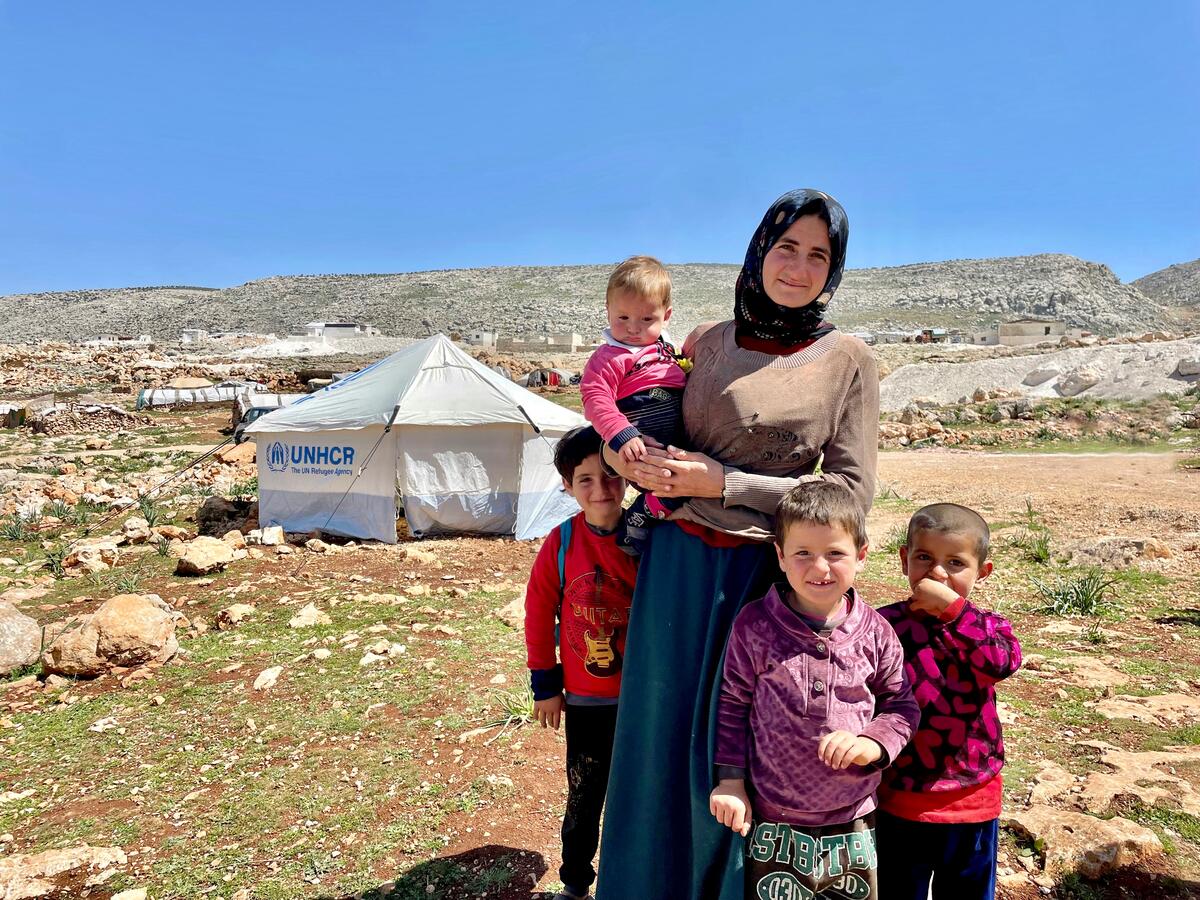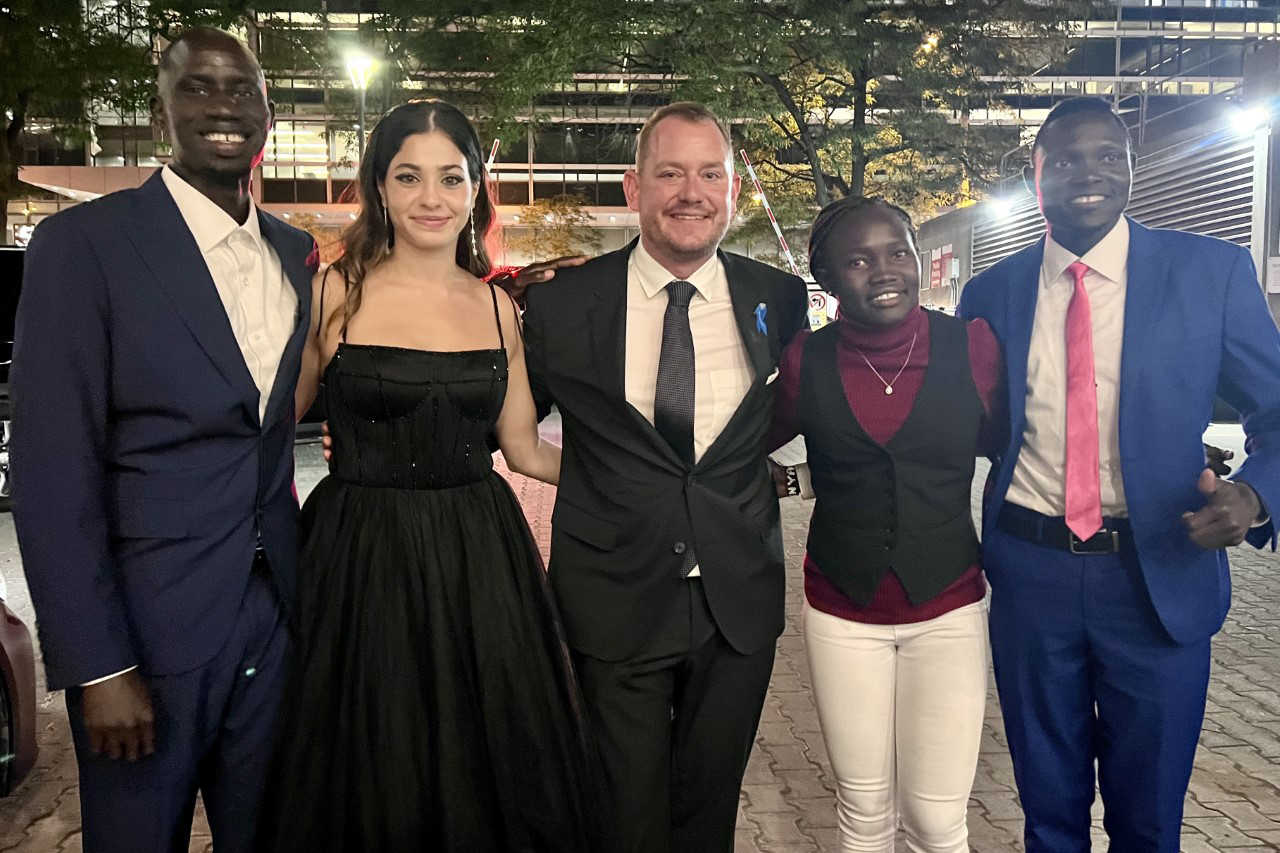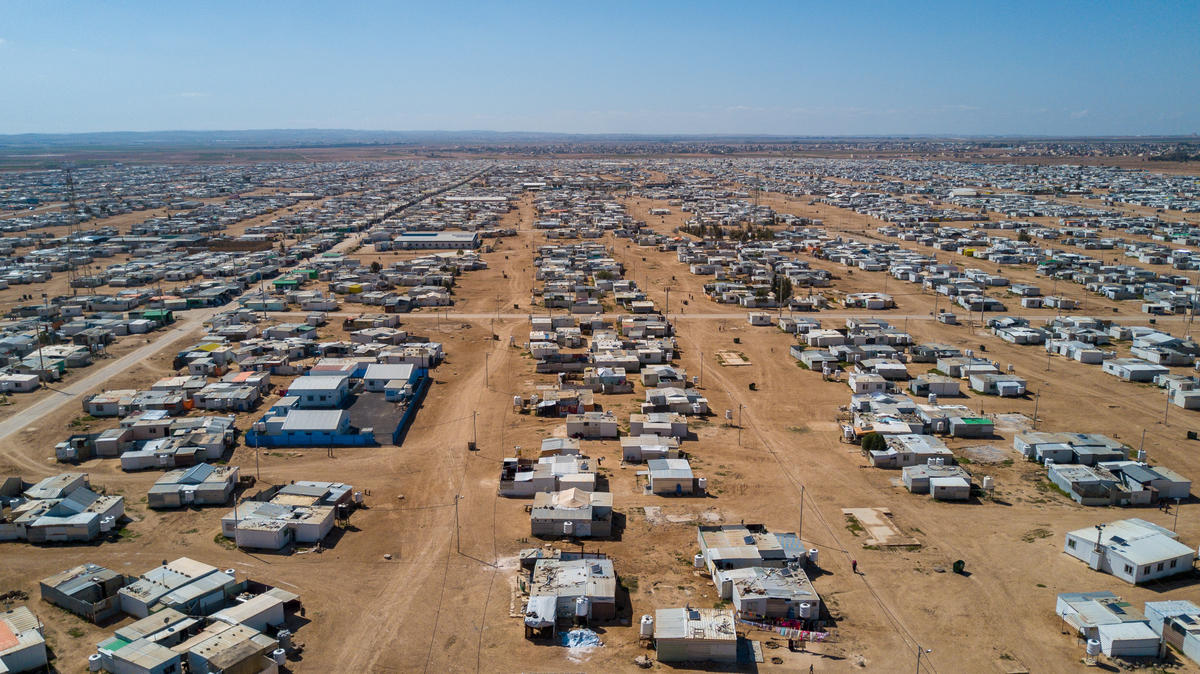Child recruitment, child labour, discrimination and loneliness – the crisis of Syria's refugee children
Child recruitment, child labour, discrimination and loneliness – the crisis of Syria's refugee children
A UNHCR survey of Syrian refugee children in Lebanon and Jordan has found widespread psychological distress, many children living alone or separated from their parents, most receiving no education, and extensive involvement of children in illegal labour.
The report, The Future of Syria - Refugee Children in Crisis, released today, is the first in-depth survey conducted by UNHCR of Syrian refugee children since the conflict began in March 2011. Among its findings are that many Syrian refugee children are growing up in fractured families, and that children are often the
household's primary breadwinners. Over 70,000 Syrian refugee families live without fathers and over 3,700 refugee children are either unaccompanied by or separated from both parent s.
"If we do not act quickly, a generation of innocents will become lasting casualties of an appalling war," said UN High Commissioner for Refugees António Guterres.
UNHCR Special Envoy Angelina Jolie said, "The world must act to save a generation of traumatized, isolated and suffering Syrian children from catastrophe."
The 32-month conflict is leaving physical and emotional scars. In Lebanon, the first six months of 2013 saw 741 Syrian refugee children being referred to hospitals for treatment of injuries. In Jordan, more than 1,000 children at the Za'atri camp have been treated for war-related injuries over the past year.
Anger and other emotional responses were also common: During focus group discussions with refugee boys, several expressed a desire to return to Syria to fight. The researchers also heard a report of boys being trained to fight in preparation for return to Syria.
In many cases, refugee families lacking financial re! sources send their children to work to ensure survival. In both Jordan and Lebanon, the researchers found children as young as seven years working long hours for little pay, sometimes in dangerous or exploitative conditions. In Za'atri refugee camp, Jordan, most of the 680 small shops employ children. An assessment in 11 of Jordan's 12 governorates found nearly one-in-two refugee households surveyed relied partly or entirely on income generated by a child.
The UNHCR research details a painful life of isolation, exclusion and insecurity for many refugee children. Of those interviewed, 29 per cent said that they leave their home once a week or less. Home is often a crammed apartment, a makeshift shelter or a tent.
The study includes multiple testimonies from children. Nadia, a newly arrived refugee in Jordan said, "our lives are destroyed. We are not being educated, and without education there is nothing. We're heading towards destruction."
The report shows that more Syrian child refugees are out of school than in. More than half of those in Jordan are not in school. In Lebanon, it is estimated that some 200,000 school-aged Syrian refugee children could remain out of school at the end of the year.
Another disturbing symptom of the crisis is the vast number of babies born in exile without birth certificates - an essential document in the battle against statelessness. A recent UNHCR survey on birth registration in Lebanon revealed that 77 per cent of 781 refugee infants sampled had no official birth certificate. Between January and mid-October 2013, only 68 certificates were issued to babies born in Za'atri camp.
The report details the massive effort mounted by the UN, NGOs, host governments and refugees themselves to address the suffering of refugee children. Financial assistance to refugee families is offered by UNHCR to help destitute and struggling families. The report profiles the creative effort! s of UNH CR, UNICEF, Save the Children and other NGOs to give children a chance to resume their education. Generosity and kindness of host communities is a recurrent theme.
There are over 1.1 million Syrian refugee children, most living in neighbouring countries. Demanding that "this shameful milestone of conflict must deliver more than headlines", Mr Guterres and Ms Jolie called for support for Syria's neighbours to keep their borders open, improve their services and support the host communities. They also appealed for countries beyond Syria's borders to offer resettlement and humanitarian admission to people who continue to feel unsafe in exile, and families with seriously wounded children.
After nearly a thousand days of conflict, the report's aim is to refocus attention on the plight of Syrian refugee children. The findings are being presented via a multimedia microsite http://unhcr.org/FutureOfSyria also subject to the 0500 GMT 29 Nov 2013 embargo] that features photographs, videos and easily tweetable quotes and statistics. Some of the videos were shot with GoPro cameras that followed children in Za'atari camp. The site appeals directly to individuals to share the children's stories, consider donating and write a message of solidarity that will be sha red with Syrian refugee children.
ADDITIONAL INFORMATION FOR JOURNALISTS
The full report, copies of this press release in Spanish, French, and Arabic, and a package of accompanying multimedia materials are available under strict embargo of not for use before 0500 GMT, 29 November 2013 at http://www.unhcr.org/media-futureofsyria
- Lebanon: Melissa Fleming (+41 79 557 9122), Roberta Russo (+961 71 910 320)
- London: Andrej Mahecic (+44 788 023 0985 or +44 207 759 8091), Laura Padoan +44 777 556 6127 or +44 207 759 8092), Adrian Edwards (+41 79 557 9120)
- Geneva [English]: Sybella Wilkes (+41 79 557 9138), Dan McNorton (+41 79 217 3011), Babar Baloch (+41 557 9106)
- Geneva [French/English]: Fatoumata Lejeune-Kaba (+41 79 249 3483)
- Geneva [Urdu/Pashto/English] +92 300 5017939 / +41 22 739 8250
- Geneva [Portuguese/Spanish/English]: Luiz Fernando Gomez +41 76 378 6297
- Washington: Brian Hansford (+1 202 999 8253)
Jordan: Kilian Kleinschmidt (+962 79 949 0361), Peter Kessler (+962-79-631-7901)
WEBLINKS
Related photos, video b-roll, the report etc are available at: http://www.unhcr.org/media-futureofsyria
Help Syria's refugees by visiting: http://donate.unhcr.org/syria
Need a UNHCR press contact in your own country? http://www.unhcr.org/4a09806215.html
Microsite: http://unhcr.org/FutureOfSyria








